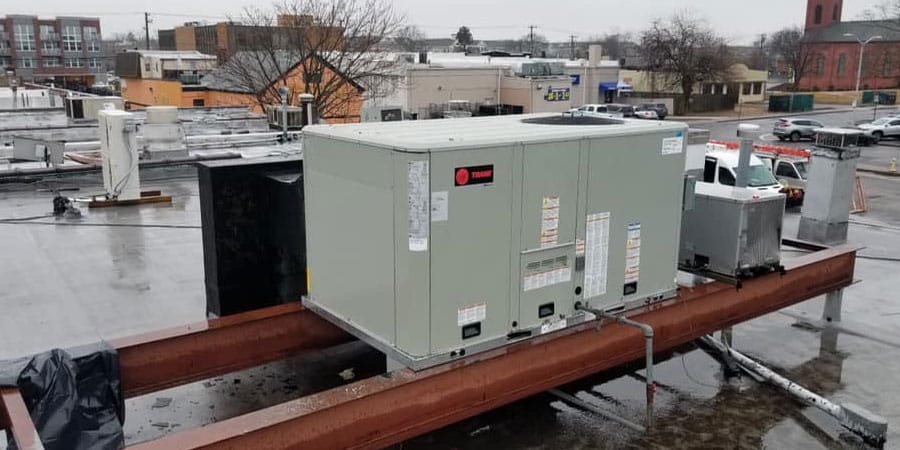If you use oil to heat your home, you should consider undertaking oil tank replacement if it’s ripe for it. Are you wondering when the right time is to do it? There are several signs that you can look out for to tell your oil tank is nearing the end of its life.
These signs include:
Apparent signs of corrosion and rust
One of the most obvious warning signs is visible rust and corrosion on the outside of your metal oil tank. While some surface wear is expected with age, significant flaking, pitting, and rust indicate advanced degradation.
As corrosion perforates the metal, it can cause cracks, pinhole leaks, and possibly internal tank failure.
During routine maintenance checks, you should look out for advanced corrosion and determine whether a new oil tank installation is the safest option.
Dents on the surface
Major dents, gouges, scratches, or other external surface damage can undermine the structural integrity of a metal or plastic tank over time. Vehicles, fallen debris, and other heavy-duty impacts can deform the tank shell, causing severe fractures and indentations.
Any noticeable dents or faults should prompt additional investigation or replacement. You shouldn’t ignore a significant dent which could harm or ruin the tank’s operation.
Leaking oil
Never disregard symptoms of oil leaks, such as a visible oil sheen on your tank or adjoining surfaces. Even extremely slow seeps signal a developing problem, so do not overlook them.
Unaddressed leaks can pose a substantial environmental danger and frequently result in significant upfront cleanup expenses, as well as visual damage to the tank’s enclosure, foundations, and surrounding region.
Depending on the severity of the leak, the tank may be repairable; nevertheless, it is often considerably more effective to arrange for a replacement.
Outdated design
Single-skinned oil tanks can still perform well, but because they only have one layer of protection, they are more likely to need to be replaced sooner than double-skinned tanks. To increase safety, new tank installations will have interstitial leak monitoring.
While older single-skinned tanks are legal, they lack the advanced level of leak and contamination detection seen in newer tanks. As a result, upgrading to newer models or choosing a stronger double-skinned tank over an older single-skinned one is strongly advised. Again, it relies on the tank’s condition during its annual checkup.
The tank is old
On average, a decent home oil tank that has been professionally installed and serviced should last between 20 and 25 years. The lifespan of a tank can vary significantly depending on factors such as location, exposure to elements, corrosion resistance, and frequency of repair.
Steel oil tanks, for example, often survive longer than plastic oil tanks; nevertheless, plastic tanks can withstand lengthy periods of time, especially if reinforced with corrosion-resistant polyethylene.
Tanks exposed to adverse weather without suitable enclosures or protection may degrade faster than those housed indoors.
Professional oil tank installations with adequate foundations and fittings are more likely to last longer than tanks that do not have periodic inspections, maintenance, and service.
Older tanks are more prone to corrosion, fatigue, and other issues if not given the necessary maintenance and care to remain running. You should evaluate any tanks over 25 years old, as replacement is frequently more cost-effective than repeated repairs.
During servicing, the professionals should examine the tank age and condition and advise on whether an oil tank replacement is necessary.
What do you get for replacing your oil tank?
Replacing your oil tank as soon as a problem arises has numerous benefits that include:
Helps to prevent tank failure. As a homeowner, you do not want to have to deal with a tank failure. Not only may an oil leak emit a foul odor, but it may also necessitate costly hazardous waste cleanup. And you don’t want this, do you?
Protects your boiler or furnace: Your old oil tank may have a coating of sludge and silt on the bottom. This muck may seep into your furnace or boiler, requiring a costly repair or replacement.
Increases safety. Older oil tanks may have unstable legs, inadequate protective tubing surrounding oil lines, or a clogged vent pipe. You resolve all of these issues by installing a replacement oil tank.
Saves energy. A new oil tank may save you money due to better efficiency, especially if you’ve been using oil more quickly than usual.
Ways to take care of your oil tank
In addition to inspecting your tank regularly, there are other ways you can care for it. These ways include:
One way to accomplish this is to schedule an annual maintenance check for your oil-fired heating system.
During a tune-up, the professional specialists will discover and resolve any faults with the heating oil tank, such as sludge, to avoid future difficulties.
Keeping your heating oil tank full throughout the year, especially in the spring and summer, helps prevent it from condensation damage.
If a heating oil tank is not filled, moisture can accumulate on exposed internal walls. This is more likely to occur at higher temperatures and can lead to condensation development.
Condensation inside the heating oil tank can cause water droplets to develop on the tank’s walls due to gravity.
Water is denser than heating oil, so it settles at the bottom of the tank, providing an excellent environment for sediment to accumulate. This sediment can cause the tank to corrode from within and eventually fail.
Condensation can cause sludge to accumulate in your heating oil tank, resulting in fuel line obstructions, lower heating efficiency, and, in severe cases, furnace failure. This can lead to significant repair expenses and loss of heat.
Keeping your heating oil tank full when winter ends will help avoid condensation and increase the life of your tank.
Another advantage is that you can avoid the inconvenience and cost of obtaining an emergency heating service repair Port Jefferson when the cold weather returns. If there is an early cold snap, you will have enough oil to keep your home warm without stress.

